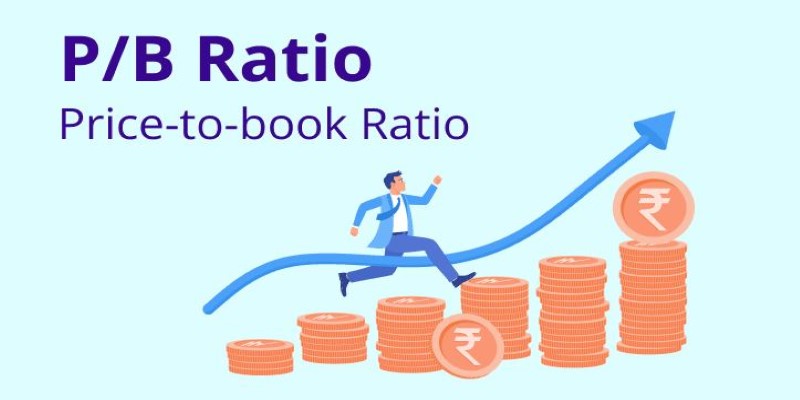Top Picks for the Best Value Stocks to Buy Now
Finding the best value stocks isn’t just about grabbing a bargain; it’s about uncovering hidden gems in the market—companies that have been overlooked but possess the potential for strong long-term growth. For many investors, value stocks are the key to steady returns without the wild swings often seen in growth stocks.
These stocks provide the opportunity to purchase established companies at a discount, with the potential for future gains. If you're interested in solid, long-term growth, venturing into the realm of value stocks might be your next savvy money move. Let's take a closer look at how you can identify them and make them work for you.
What Makes a Stock a "Value" Stock?
An undervalued stock or value stock is usually a firm that is undervalued in the market, i.e., priced lower than its actual value. This may be for many reasons, like short-term business challenges or market circumstances that have led the stock price to decline. Yet the company itself might be sound, with excellent fundamentals to indicate sustainable recovery and growth in the long term. It offers investors the chance to purchase stocks at a discount, with a possible strong long-term return.
Value stock investing involves having a good eye for recognizing companies with good financials, good management, and good growth prospects but whose shares have been undervalued. This is in contrast to growth investing, in which the investor looks for stocks of companies with the potential to grow, usually at a premium.
How to Spot the Best Value Stocks?
Investors tend to consider a variety of important financial ratios in finding the best-value stocks. Of particular significance is the Price-to-Earnings (P/E) ratio. An uncharacteristically low P/E ratio indicates the stock is relatively cheap compared to its earnings, and you can purchase entry into a business at a discounted price relative to its earnings. But this should be weighed against other considerations, including the firm's debt burden and the stability of its earnings.

Another useful metric is the Price-to-Book (P/B) ratio. This ratio compares the stock price to the company’s book value (its assets minus liabilities). A P/B ratio below 1.0 can signal that the stock is undervalued, as the market is pricing the company below its tangible assets. However, this alone isn’t enough to determine if a stock is a good value investment.
In addition to these ratios, investors should also consider a company's historical performance, growth prospects, and market position. Value investing is about finding stocks that the market is overlooking or mispriced but which have solid potential for recovery and growth over time.
Why Value Stocks Offer Strong Long-Term Potential?
Value stocks can offer strong long-term returns for several reasons. First, because these stocks are often undervalued, they have a lower entry price, which gives investors the chance to buy shares at a discount. This means that, over time, the stock price could appreciate significantly if the company’s fundamentals improve and the market recognizes its true value.
Additionally, value stocks tend to be more stable than growth stocks. While growth stocks can experience high volatility due to their reliance on future growth projections, value stocks are often more established, with steady cash flows and a history of consistent performance. This makes them a safer bet for investors looking for long-term stability rather than the highs and lows of more speculative investments.
Moreover, many value stocks pay dividends. This means that, in addition to potential capital appreciation, investors can also receive regular income from their investments. This can be particularly appealing for those who are looking to build wealth over time or generate passive income from their portfolio.
Top Value Stocks for Long-Term Investment
While many stocks could be considered good value investments, a few consistently stand out as top picks for long-term investors. These stocks typically combine strong financials, low valuation, and good growth prospects.
Johnson & Johnson
One such stock is Johnson & Johnson. Despite being a large, well-established company, it often trades at a lower valuation compared to its earnings potential, making it a top contender for value investors. The company’s strong market position in the healthcare sector, along with its consistent dividend payments, makes it a solid choice for those looking for stability and growth.
Bristol-Myers Squibb
Another great value stock is Bristol-Myers Squibb, a pharmaceutical company with a history of strong earnings and a solid pipeline of drugs in development. With a P/E ratio lower than many of its industry peers and a strong dividend yield, Bristol-Myers Squibb offers value investors the chance to buy into a company with significant long-term growth potential.
Walmart

Walmart is another standout in the value investing space. As a retail giant, it often trades at a lower valuation compared to its earnings and growth potential. Walmart’s consistent performance, strong market presence, and ability to adapt to changing consumer trends make it an excellent choice for long-term investors seeking value.
Pfizer
Pfizer is a stock that has consistently been a strong value investment over the long term. The company maintains a low P/E ratio, solid cash flow, and a diverse portfolio of pharmaceutical products. Its recent achievements in the healthcare sector have further strengthened its position, and its history of dividend payments makes it an appealing choice for income-focused investors.
Conclusion
The best-value stocks offer significant potential for long-term growth and stability. By investing in companies like Johnson & Johnson, Bristol-Myers Squibb, Walmart, and Pfizer, investors can tap into opportunities with strong financials, low valuations, and consistent dividend payments. While risks exist, a careful approach to value investing can help build a solid portfolio. With patience, thorough research, market awareness, and strategic planning, these stocks can provide a reliable foundation for sustained wealth, passive income, and financial security over time.












